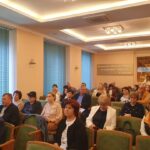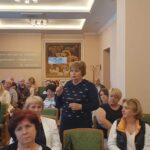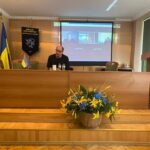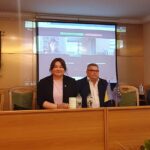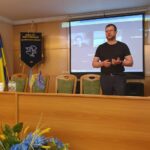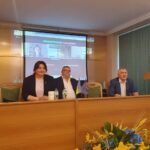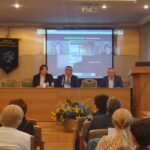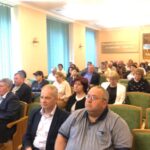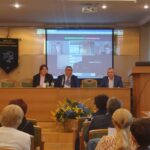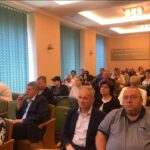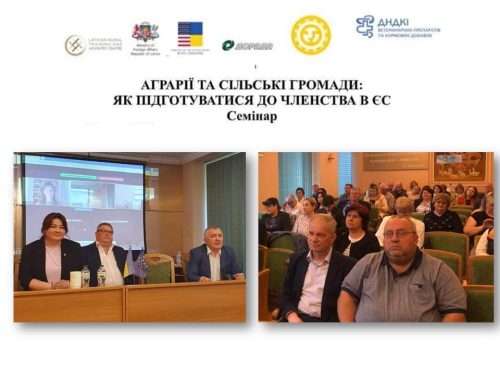
On 14 May, a seminar entitled “Farmers and Rural Communities: How to prepare for EU membership’ was held at the State Scientific-Research Control Institute of Veterinary Medicinal Products and Feed Additives. The event was organised by the National Association of Agricultural Advisory Services of Ukraine with the support of the Department of Agricultural Development of the Lviv Regional State Administration and the Latvian Rural Consultation and Education Centre.
Seminar participants were welcomed by Tetiana Hetman, Director of the Department of Agricultural Development, who reported on the successful implementation of the State Agrarian Register, an electronic platform created with EU support. Now local farmers and rural residents can quickly apply for state grants and subsidies.
In his speech, Volodymyr Stibel, Director of the State Scientific-Research Control Institute of Veterinary Medicinal Products and Feed Additives, Doctor of Veterinary Science, Professor, noted that the development and well-thought-out self-government of rural communities is a key factor in the successful functioning of the agricultural sector of any European country. Therefore, when talking about Ukraine’s future membership in the European Union, it is important not to forget about attracting investments into the development of rural infrastructure, health care, education and other areas of rural life.
The participants were also welcomed by Andris Kursitis, Director of Education and Training at the Latvian Rural Advisory and Education Centre, who spoke about the strategy of pre-accession preparations, the content and components of EU agricultural and rural development policy.
The main organiser of the seminar, Roman Korinets, Director of the National Academy of Agricultural Sciences of Ukraine, presented the results of his own research on Ukrainians’ perceptions of agro-European integration and spoke about EU financial support to Ukraine.
Mykola Moroz, Head of the Agricultural Strategy Department at the Ministry of Agrarian Policy and Food of Ukraine, briefed participants on the ministry’s European integration activities. He noted that the country’s agricultural sector is currently at the beginning of accession negotiations and therefore needs to prepare a number of regulations in line with EU requirements.
Ms Laimonta Straujuma, former Minister of Agriculture and Prime Minister of Latvia in 2014-2016, shared Latvia’s experience of EU membership with the audience, describing important European integration mechanisms that her country had introduced on its way to accession.
Aivarārs Lapiņš, Advisor to the Latvian Ministry of Agriculture, Permanent Delegate of Latvia to the OECD and UNESCO, presented an interesting report on the accession/pre-accession assistance toolkit for rural development for EU candidate countries.
Karpars Žurins, Director of the Latvian Centre for Rural Consultation and Training in International Projects, spoke about the role of rural advisory services in the pre-accession period and in ensuring a successful EU integration process.
In general, the seminar became a place of meeting and constructive discussion for representatives of municipalities, business, NGOs, scientific and educational institutions and extension services.
It was also a great pleasure to welcome our old friends and partners to the event: Hryhorii Sedilo, Head of the Department of Entrepreneurship and Trade at the Lviv National University of Environmental Management, Doctor of Economics, Professor Yurii Hubeni, Doctor of Economics, Professor Ihor Yatsiv, Head of the Department of Business Economics, Innovation and Agricultural Extension at the Lviv National University of Veterinary Medicine named after S. Z. Gjytskiy, Professor Pavlo Muzyka, Deputy Director of the Department of Agricultural Development Lyudmyla Honcharenko and other important people.
In conclusion, the seminar was an important step in Ukraine’s preparation for accession to the European Union and provided an opportunity to acquire unique knowledge on the implementation of the best European practices and standards in the domestic agricultural sector, which will undoubtedly help our rural communities to become a driver of economic growth and social development of the state, which in turn will contribute to the stability and confidence of our country in the international arena.


